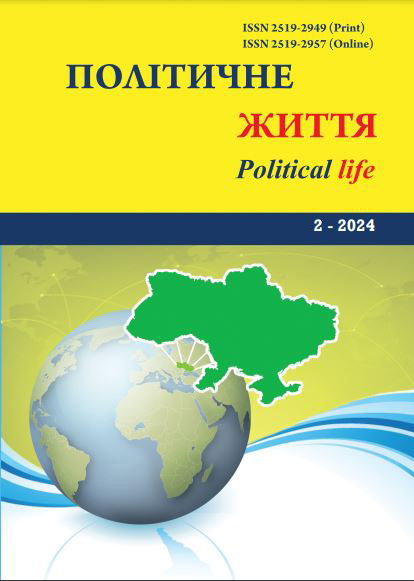Features of the historical Experience of Vietnam in the prolonged war of attrition as an example for Ukraine
DOI:
https://doi.org/10.31558/2519-2949.2024.2.7Keywords:
war of attrition, Vietnam, peace negotiations, Cold War, Geneva ConferenceAbstract
This article reveals the topic of historical conflicts in the middle of the 20th century and examines their historical experience for use as examples for the present. The conflict in Vietnam at the end of the first Indochina war is taken as an example.
The course and development of international relations in the region and the regional security system in the context of a global conflict such as the Cold War and a regional active conflict such as the first IndoChina war are analyzed.
The article focuses on determining the positions of the parties, the situation on the battlefield, and the process of ending the war through a peace process. Attention is also paid to the peculiarities of such an active conflict as a war of attrition.
Set as the long-running war of attrition and global conflict between two Cold War rivals influenced decision-making for the regional war in Vietnam and the peace process. A comparison is made between the situation in Vietnam as of the summer of 1954, when peace negotiations were held at the Geneva Congress, and the current situation in Ukraine. During the research, the main circumstances and factors that influenced the course of the peace process at the Geneva Conference were established
This study is devoted to the prerequisites that contributed to the start of the second Indochinese war and asks the question why the end of the first Indochinese war did not lead to the solution of the urgent military and political problems of Vietnam, despite significant military achievements and the superiority of one of the sides.
The article expresses the opinion that the main source of contradictions that will lead to the emergence of a new crisis are the decisions of the Geneva Peace Conference of 1954 and the relevant treaties that were adopted during it. Therefore, the research focuses on studying all the circumstances that influenced the formation of the agreements that were adopted. Parallels with Ukraine are also actively drawn and historical lessons that could be useful to Ukraine in a similar conflict today are determined.
References
Boylan, Kevin; Olivier, Luc (2018). Valley of the Shadow: The Siege of Dien Bien Phu. Oxford: Osprey Press. p. 286
Turner, Robert F. (1975). Vietnamese Communism: Its Origins and Development. Hoover Institution Publications. p. 92
Logevall, Fredrik (2012). Embers of War: The Fall of an Empire and the Making of America’s Vietnam. random House. pp. 549 – 555, 596, 575
Ang Cheng Guan (1997). Vietnamese Communists’ Relations with China and the Second Indochina War (1956–62). Jefferson, NC: McFarland. p. 11.
"Minsk Protocol" (Press release). Organization for Security and Co-operation in Europe. 5 September 2014. Retrieved 9 September 2014. URL: https://www.osce.org/files/f/documents/a/a/123258.pdf (in Russian)
Philippe Franchini, Les Guerres d’Indochine, vol. I, Pygmalion – Gérard Watelet, Paris, 1988, pp. 399–406
Gravel (ed.), Pentagon Papers, Vol. 1, Boston. Beacon Pr. 1975 pp. 279-282.
Geneva Agreements 20-21 July 1954" (PDF). United Nations. 1954. Archived (PDF) from the original on 2018-11-10. URL: https://web.archive.org/web/20181110053124/https://peacemaker.un.org/sites/peacemaker.un.org/ files/KH-LA-VN_540720_GenevaAgreements.pdf
Fadiman, Anne. The Spirit Catches You and You Fall Down. Farrar, Straus and Giroux. 1997. P. 126.

